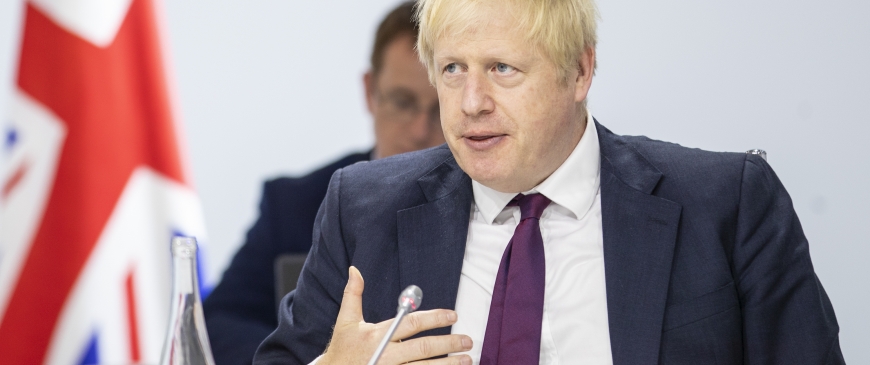
Johnson's future Brexit plan would be almost as disruptive as no deal
If the Conservatives win the general election, Boris Johnson intends to withdraw the UK from the EU and negotiate a free trade agreement with the Union based “on the model of a super Canada plus arrangement” by the end of 2020. Much of the commentary has focused on whether it is possible to get a deal done before the stand-still transition period legally ends (it is but it will be difficult). Yet not enough time has been spent examining what his proposed “super Canada plus arrangement” would actually mean in practice.
At its most ambitious, an EU-UK free trade agreement could remove all tariffs and quotas. However, fully tariff and quota-free trade with the EU will not come without strings attached: the UK will be asked to guarantee access to its fishing waters for EU vessels and to meet EU level playing field conditions on issues such as state aid, for example.
Yet, assuming Johnson is able to concede on these issues, such an agreement is possible. The more pertinent question is whether, once the reality of what he is proposing sinks in, such an agreement is sufficient. For while the conditional (I’ll return to this) removal of tariffs and quotas is nothing to be sniffed at, it is far from the close-to frictionless trade we enjoy today. And in practice, for many businesses, a “super Canada plus arrangement” will require as much adjusting to as a no-deal exit.
For example, the existence of a free trade agreement that removes tariffs and quotas does not automatically mean that exported and imported products qualify for the preferential treatment. For products to trade tariff-free between the EU and UK, their sellers will need to be able to demonstrate that the products are sufficiently “local” and meet the rules of origin criteria of the agreement. Rules of origin compliance can be complicated and costly.
More broadly on customs, while Johnson’s political declaration on the future relationship envisages close co-operation between the UK and EU, the stated ambition is to reduce friction and cost, not remove it entirely. Exporters will still be required to submit customs and security declarations, risk-based inspections and the payment of tariffs (when goods are not covered by the free trade agreement) and other taxes payable upon import such as VAT and excise duty. Products of animal origin such as milk, lamb and eggs will be required to enter the EU via specialist border inspection posts, where they will be subject to inspections.
An EU-UK free trade agreement means additional controls, administrative tasks, costs and friction at Great Britain’s borders.
When it comes to trade in services, EU free trade agreements offer little beyond the EU’s baseline, World Trade Organisation, offer to third countries. Broadly speaking, the EU will remain relatively open to UK investment, and will encourage the establishment of company subsidiaries within its territory, but selling directly from the UK will become much more difficult than now. The logical consequence of this will be a medium-term shift in investment out of the UK and into the EU27, as businesses restructure so as to continue servicing their EU-based clients. While the single market in services is not as complete as the single market in goods, the UK will soon learn there are practical consequences to being outside of it.
So, in practice, even if Johnson manages to negotiate his desired free trade agreement by the end of next year, companies can expect a big shift on New Year’s Day 2021. Overnight, the UK would have moved from a highly integrated relationship with the EU, to one of loose affiliation—the initial shock would be comparable to exiting the EU without the future relationship resolved.
So when the reality of his proposal sinks in, what does Johnson do? Does he carry on regardless of the risk? Does he increase the ambition, and push instead for a more integrated relationship with the EU that could see him having to compromise on issues such as the customs union, jurisdiction of the European Court of Justice and freedom of movement? Or does he attempt to kick the can; extend the transition period and phase in the future relationship over a period of years in the hope something new comes up? Much will depend on whether Johnson wins a sizable majority that allows him to have his way in parliament. But one thing the past three years of Brexit has taught us is that when a British prime minister is faced with the tough economic and political reality of rupture, No 10 tends to bottle it.
Sam Lowe is a senior research fellow at the Centre for European Reform.
